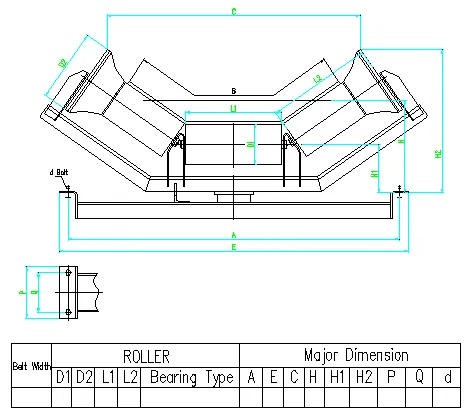 Afrikaans
Afrikaans  Albanian
Albanian  Amharic
Amharic  Arabic
Arabic  Armenian
Armenian  Azerbaijani
Azerbaijani  Basque
Basque  Belarusian
Belarusian  Bengali
Bengali  Bosnian
Bosnian  Bulgarian
Bulgarian  Catalan
Catalan  Cebuano
Cebuano  Corsican
Corsican  Croatian
Croatian  Czech
Czech  Danish
Danish  Dutch
Dutch  English
English  Esperanto
Esperanto  Estonian
Estonian  Finnish
Finnish  French
French  Frisian
Frisian  Galician
Galician  Georgian
Georgian  German
German  Greek
Greek  Gujarati
Gujarati  Haitian Creole
Haitian Creole  hausa
hausa  hawaiian
hawaiian  Hebrew
Hebrew  Hindi
Hindi  Miao
Miao  Hungarian
Hungarian  Icelandic
Icelandic  igbo
igbo  Indonesian
Indonesian  irish
irish  Italian
Italian  Japanese
Japanese  Javanese
Javanese  Kannada
Kannada  kazakh
kazakh  Khmer
Khmer  Rwandese
Rwandese  Korean
Korean  Kurdish
Kurdish  Kyrgyz
Kyrgyz  Lao
Lao  Latin
Latin  Latvian
Latvian  Lithuanian
Lithuanian  Luxembourgish
Luxembourgish  Macedonian
Macedonian  Malgashi
Malgashi  Malay
Malay  Malayalam
Malayalam  Maltese
Maltese  Maori
Maori  Marathi
Marathi  Mongolian
Mongolian  Myanmar
Myanmar  Nepali
Nepali  Norwegian
Norwegian  Norwegian
Norwegian  Occitan
Occitan  Pashto
Pashto  Persian
Persian  Polish
Polish  Portuguese
Portuguese  Punjabi
Punjabi  Romanian
Romanian  Russian
Russian  Samoan
Samoan  Scottish Gaelic
Scottish Gaelic  Serbian
Serbian  Sesotho
Sesotho  Shona
Shona  Sindhi
Sindhi  Sinhala
Sinhala  Slovak
Slovak  Slovenian
Slovenian  Somali
Somali  Spanish
Spanish  Sundanese
Sundanese  Swahili
Swahili  Swedish
Swedish  Tagalog
Tagalog  Tajik
Tajik  Tamil
Tamil  Tatar
Tatar  Telugu
Telugu  Thai
Thai  Turkish
Turkish  Turkmen
Turkmen  Ukrainian
Ukrainian  Urdu
Urdu  Uighur
Uighur  Uzbek
Uzbek  Vietnamese
Vietnamese  Welsh
Welsh  Bantu
Bantu  Yiddish
Yiddish  Yoruba
Yoruba  Zulu
Zulu Effective Solutions for Maintaining Clean Conveyor Belts in Industrial Settings
The Importance of Belt Cleaners in Modern Industry
In today's fast-paced industrial landscape, the efficiency and reliability of conveyor systems play a crucial role in maintaining productivity. Among the many components that contribute to the smooth operation of conveyor belts, belt cleaners are arguably one of the most essential. These devices, designed to remove material off the surface of conveyor belts, are vital for ensuring optimal performance and minimizing downtime.
Belt cleaners come in various designs and configurations, each tailored to specific applications and types of material being conveyed. They can be divided into primary cleaners and secondary cleaners. Primary cleaners are installed at the discharge point of the conveyor and are the first line of defense against material buildup. Secondary cleaners follow up to ensure that any residual material is effectively removed before the belt returns to the loading area.
One of the most significant advantages of using belt cleaners is the prevention of material carryback, which occurs when conveyed materials stick to the belt and are transported back along its return path. Carryback not only leads to increased material waste but can also create a hazardous working environment due to spills and debris. Furthermore, the accumulation of materials can damage the belt itself and other components of the conveyor system, resulting in costly repairs and prolonged downtime.
The efficiency of belt cleaners can significantly impact the overall operational costs of an industrial facility
. With effective cleaning systems in place, companies can minimize the amount of material lost during transport, thus reducing waste and improving cost-efficiency. This is particularly important in industries that handle expensive or valuable materials, where even small amounts of carryback can mean significant financial losses.belt cleaner

Moreover, belt cleaners play an essential role in maintaining hygiene and cleanliness in facilities, especially in industries like food processing and pharmaceuticals, where contamination is a severe concern. The regular and effective cleaning of conveyor belts protects product integrity and ensures compliance with stringent health and safety regulations.
Another key consideration is the lifespan of the conveyor system itself. By keeping conveyor belts clean, belt cleaners reduce the wear and tear on the belts and other components. This proactive maintenance helps extend the overall lifespan of the equipment, leading to less frequent replacements and lower capital expenditures in the long run.
When selecting a belt cleaner, companies must consider several factors, including the type of material being transported, the conditions of the operational environment, and the specific design of the conveyor itself. Proper integration and alignment of the belt cleaner are also crucial to maximize its effectiveness. Regular maintenance and inspection of the cleaning systems should not be overlooked, as worn or damaged cleaners can lead to inadequate performance.
In recent years, technological advancements have led to the development of more efficient and durable belt cleaning systems. Many modern cleaners are designed with advanced materials and adjustable components that enhance their cleaning capabilities while minimizing wear on the belts. This ensures that they are more effective in a broader range of applications and can adapt to the changing needs of an operation.
In conclusion, belt cleaners are an indispensable component of modern conveyor systems in various industries. Their ability to prevent material carryback, reduce operational costs, maintain safety and hygiene, and extend system life makes them essential for any efficient material handling operation. As industries continue to evolve and demand for increased efficiency rises, the importance of effective belt cleaning solutions will only grow. Investing in high-quality belt cleaners is not just a choice; it’s a necessity for maintaining operational excellence in today’s competitive industrial landscape.
-
Revolutionizing Conveyor Reliability with Advanced Rubber Lagging PulleysNewsJul.22,2025
-
Powering Precision and Durability with Expert Manufacturers of Conveyor ComponentsNewsJul.22,2025
-
Optimizing Conveyor Systems with Advanced Conveyor AccessoriesNewsJul.22,2025
-
Maximize Conveyor Efficiency with Quality Conveyor Idler PulleysNewsJul.22,2025
-
Future-Proof Your Conveyor System with High-Performance Polyurethane RollerNewsJul.22,2025
-
Driving Efficiency Forward with Quality Idlers and RollersNewsJul.22,2025





























